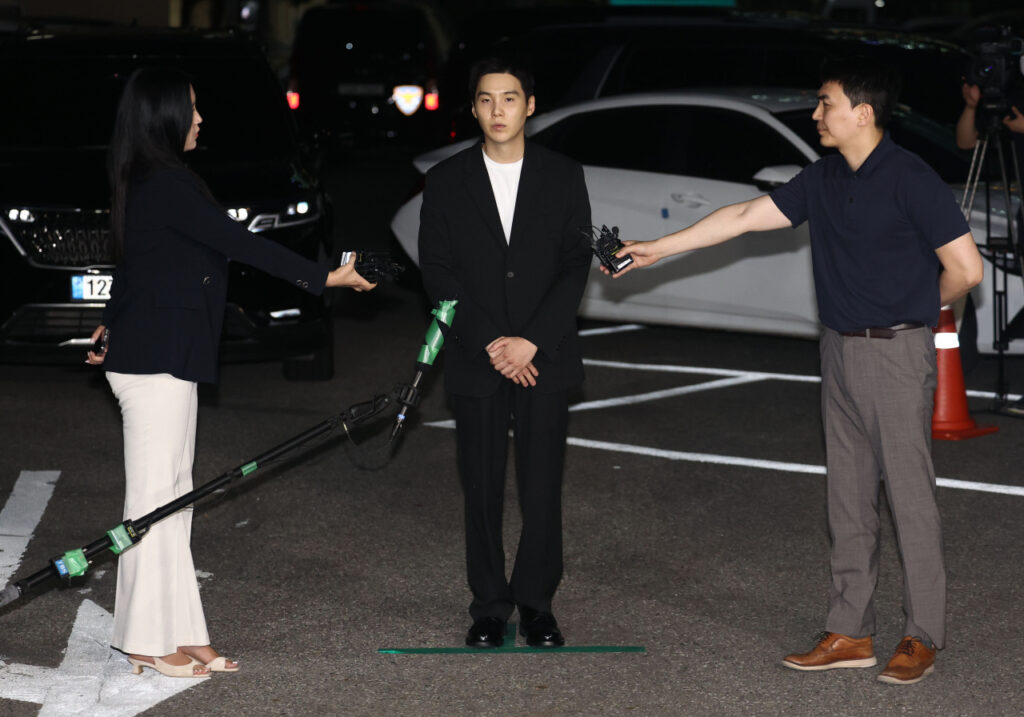(ANN/KOREA HERALD) – The recent DUI incident involving K-pop star Suga has sparked widespread debate, with fans and critics alike questioning the severity of the backlash he has received.
Suga, a member of the globally renowned group BTS, was found to have driven an electric scooter under the influence of alcohol, registering a blood alcohol concentration (BAC) of 0.227 per cent. This marks the highest BAC ever recorded in a DUI case involving a K-pop artist, surpassing previous cases such as Kangta of H.O.T. (0.102 per cent) and Shin Hye-sung of Shinhwa (0.097 per cent).
The incident has divided opinions, particularly among BTS’ fanbase, known as ARMY, both locally and internationally. Some international fans argue that riding an electric scooter under the influence is less severe than driving a car. However, under Korea’s Road Traffic Act, electric scooters are classified as vehicles and are subject to the same legal consequences as driving a car while intoxicated.

Music critic Kim Do-heon suggests that the differing cultural perspectives on DUI cases and the heightened moral expectations placed on celebrities in Korea contribute to the polarised reactions.
“Until recently, Korea had been relatively lenient on drunk driving. But with the increasing awareness of the dangers and the serious consequences of such actions, the public’s view has become much stricter, especially when it comes to celebrities,” Kim explained. “In contrast, while there is criticism of drunk driving abroad, the moral expectations for public figures do not seem to be as stringent as they are in Korea.”
There are also concerns that the intense scrutiny Suga faces could lead to severe consequences, similar to the tragic case of actor Lee Sun-kyun, who faced immense pressure amid allegations of drug use and ultimately took his own life. However, Kim notes that Lee’s case involved additional factors, such as adultery, which are more heavily stigmatised in Korea than in some other countries.
“With the recent introduction of stricter DUI laws in Korea, there is a growing trend to condemn such behavior more harshly, reflecting the country’s evolving stance on moral and legal issues,” Kim added.
On the other hand, some in the local entertainment industry question whether the level of criticism directed at K-pop stars like Suga is warranted. An official from a local entertainment company commented, “While driving a scooter under the influence is a serious mistake, the excessive media scrutiny, such as placing him in a police photo line, seems disproportionate given the circumstances.”
Social media has also played a significant role in amplifying the controversy, with some false reports circulating online.
Professor Lee Jong-im of Seoul National University of Science & Technology emphasised the need for changes in both media practices and public consumption of scandal-driven content.
“As the media environment evolves, the focus on sensational stories has increased, particularly those involving celebrities. This trend needs to be addressed,” Professor Lee said. “Both consumers and fans should prioritize accurate and reliable information, and the media must adapt its reporting practices, especially in light of recent tragic incidents linked to excessive scandal coverage.”


